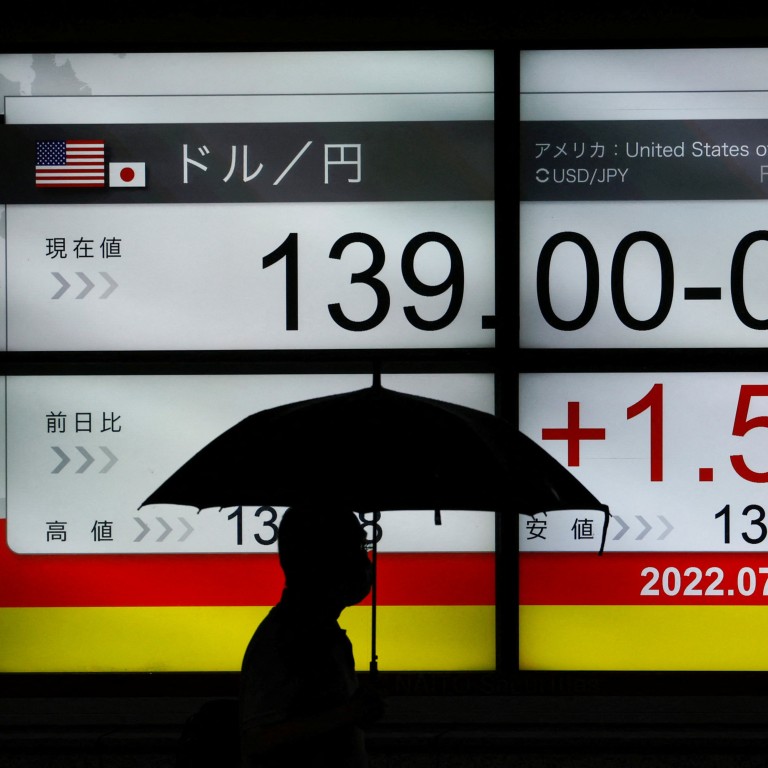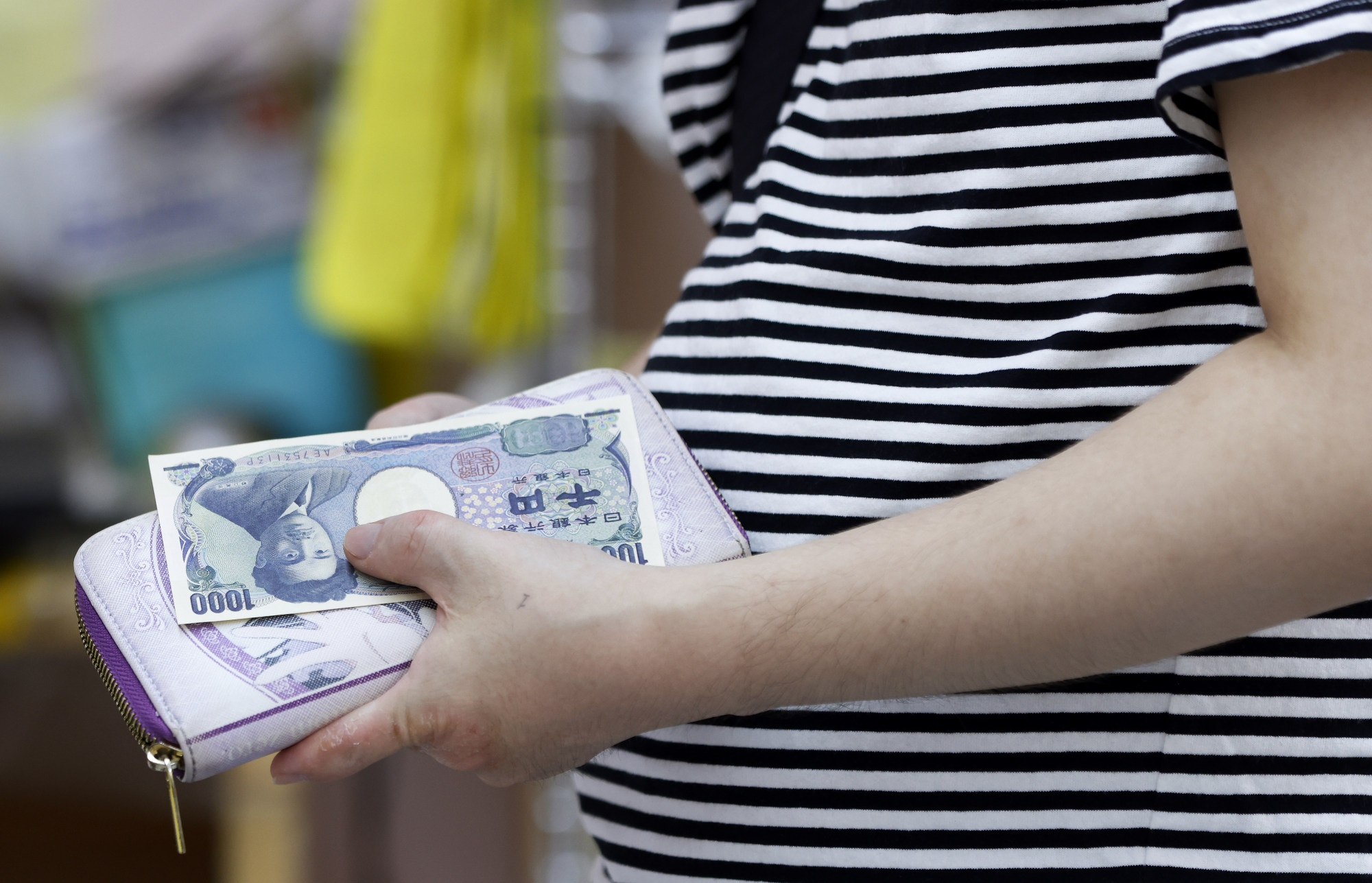
Is the falling Japanese yen cause for concern?
- As the US dollar surges, Japan’s yen is at its weakest in decades, driving speculation in foreign exchange markets
- So far, the Bank of Japan has shown no signs of changing course on interest rates, but if it does, markets could be in for a roller-coaster ride
The euro is understandably weak: in addition to the war, there are gas shortages, rising inflation and widening fiscal deficits. China, meanwhile, is struggling to recover from months of Omicron-driven lockdowns. The country’s growth is at its slowest in more than four decades, excepting 2020.
Then there is the yen. Japan’s currency fell to 137 to the dollar in June, its lowest value in more than 20 years, and 16 per cent lower than at the beginning of the year. Three possible reasons for this drop have been given: the oil shock from the Ukraine war; the difference between the Bank of Japan’s monetary policy and those of other major central banks; and the possible return of “Mrs Watanabe”. Let’s deal with the two simpler reasons first.

Next, Japan has the loosest monetary policy of all reserve currency countries. It was the first major economy to experiment with quantitative easing, introducing a zero-interest policy in February 1999 during the country’s post-bubble recession.
Now that the Fed has raised benchmark rates by another 75 basis points, the gap between US interest rates (2.25-2.5 per cent) and those of the European Central Bank (raised this month from zero to 0.5 per cent) and the Bank of Japan (still at -0.1 per cent) is widening. This gap has enabled the return of interest rate arbitrage trading – the borrowing of cheap yen or euro to invest in dollar assets. Traders are now more willing to short-sell yen or euro and go long on the dollar, betting that the dollar will get stronger.
With US inflation at a high of 9.1 per cent per annum, the real interest differential is still negative by over 6 percentage points, suggesting room for more rate hikes before the end of the year.
This raises the spectre of the return of “Mrs Watanabe”, the proverbial Japanese housewife who uses margin trading to earn higher interest rates to supplement the household income. She would lose heavily if the yen appreciates sharply instead of continuing to depreciate.
Markets worry about Mrs Watanabe because there is more than 1,000 trillion yen (US$6 trillion) in Japanese household deposits earning no interest, and if a portion were used to speculate on foreign exchanges, the markets would be in for another roller coaster ride.
So far, Japanese inflation remains low compared to levels in the US and Europe, so the Bank of Japan has not taken any steps to change its current monetary stance.
How the looming developing-country debt crisis can be headed off
With the risk that further Fed interest rate hikes could trigger a recession in the US, and as higher rates around the world reverse asset bubbles, we are caught between stagflation (high inflation and stagnant growth) and financial distress.
Every global financial crisis has been accompanied by major corporate or sovereign debt defaults – except for during the pandemic, when loose monetary and fiscal policies staved off mass borrower failures. But the period of postponing bankruptcies and low interest rates may well be over.
Thus, all eyes are now on what major surplus countries like Japan will do. Will Japan continue to supply the rest of the world with savings? Will interest rate increases cause Japanese investors to seek safety back home?
Those who have no yen for risk, hold on to your hats.
Andrew Sheng writes on global issues from an Asian perspective


